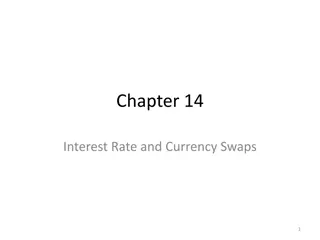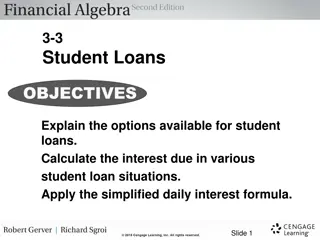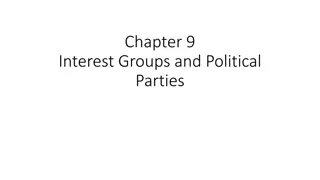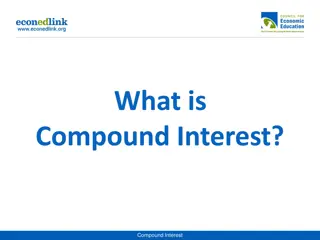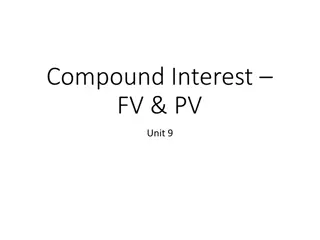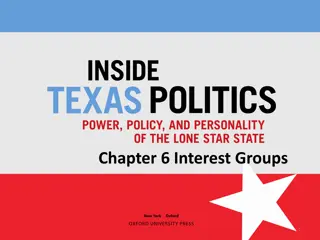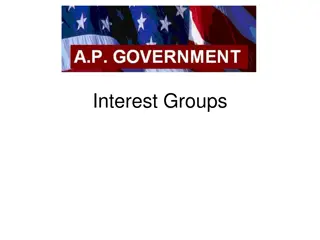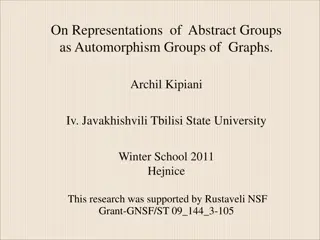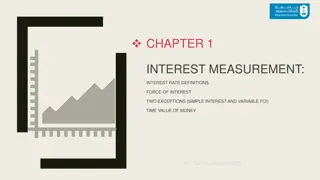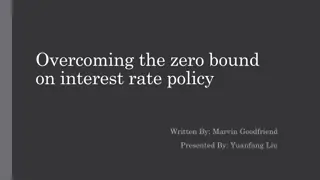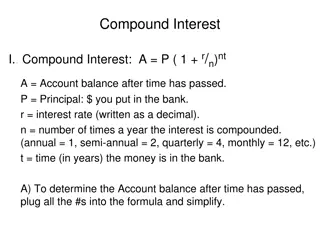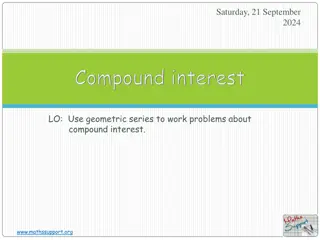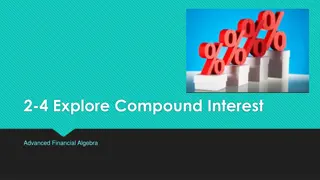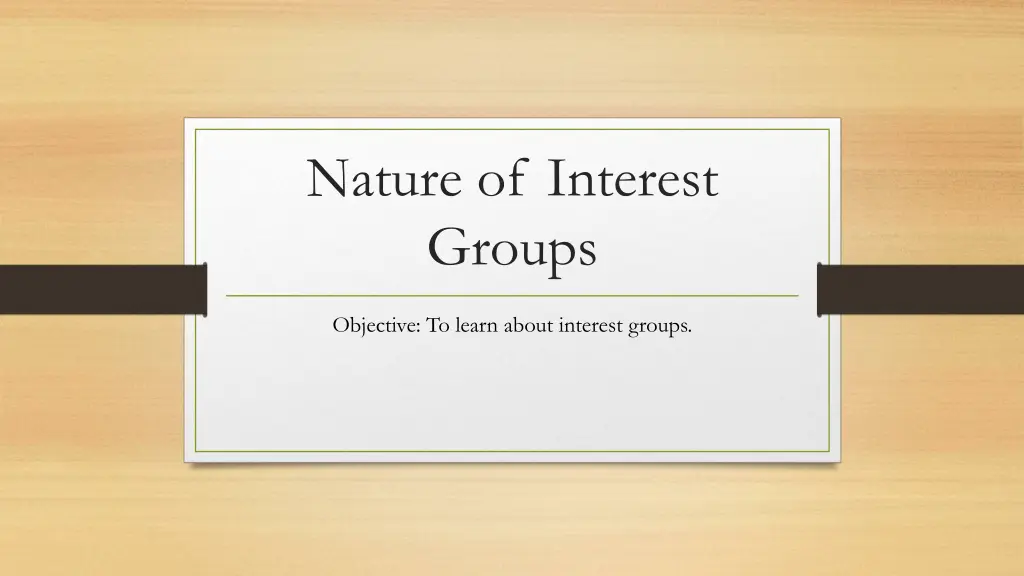
Understanding Interest Groups in Politics
Explore the role and impact of interest groups in shaping public policy. Learn about the differences between interest groups and political parties, their valuable functions, as well as criticisms associated with them. Analyze the influence of organized interests on government decisions and political participation.
Download Presentation

Please find below an Image/Link to download the presentation.
The content on the website is provided AS IS for your information and personal use only. It may not be sold, licensed, or shared on other websites without obtaining consent from the author. If you encounter any issues during the download, it is possible that the publisher has removed the file from their server.
You are allowed to download the files provided on this website for personal or commercial use, subject to the condition that they are used lawfully. All files are the property of their respective owners.
The content on the website is provided AS IS for your information and personal use only. It may not be sold, licensed, or shared on other websites without obtaining consent from the author.
E N D
Presentation Transcript
Nature of Interest Groups Objective: To learn about interest groups.
The Role of Interest Groups An interest group is a collection of people who share certain views on public matters and work to shape public policy to their benefit. They try to persuade public officials to respond to their positions favorably. They can be called leagues, associations, clubs, federations, etc. Every interest group seeks to influence the making and content of public policy (the goals that a government pursues in the many areas of human affairs in which it is involved). They operate at every level of government.
Parties and Interest Groups Interest groups are different from political parties in three ways (1) with respect to making the nomination, (2) in their basic focus, and (3) in the scope of their interests. (1) parties nominate candidates for office, interest groups do not. (2) Parties are chiefly interested in winning elections and thereby controlling government. Interest groups are chiefly concerned with controlling or influencing the policies of government. (3) Political parties are necessarily concerned with the whole range of public affairs. Interest groups concentrate only on those issues that most directly affect the interests of their members.
Interest Groups: Good or bad? Many have long viewed interest groups with suspicion. Example is James Madison. Alexis de Tocqueville was impressed by the vast number of organizations in the US.
Their Valuable Functions Organized interests help to stimulate awareness and interest in public affairs (those issues and events that concern the people at large). Interest groups represent their members on the basis of shared attitudes rather than the basis of geography. Organized interests often provide useful, specialized, and detailed information to governments. Interest groups are catalysts for political participation. Interest groups add another element to the checks-and-balances feature of the political process. Interest groups regularly compete with one another in the public arena.
Criticisms Many groups push their own special interests which are not always the best interests of other Americans. Some interest groups have an influence far out of proportion to their size for the common good. It is hard to tell how many people are represented in an interest group. Many groups do not represent the views of all the people for whom they claim to speak. Some groups use tactics that could undermine the whole political system.

